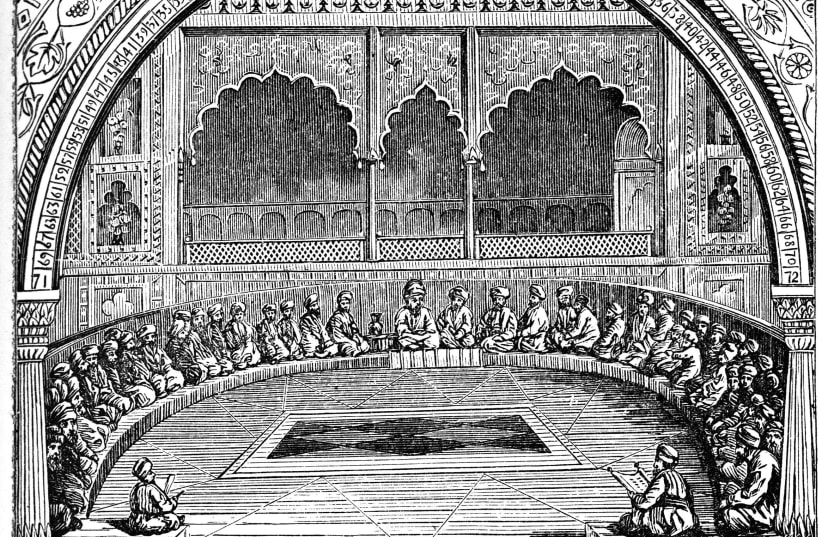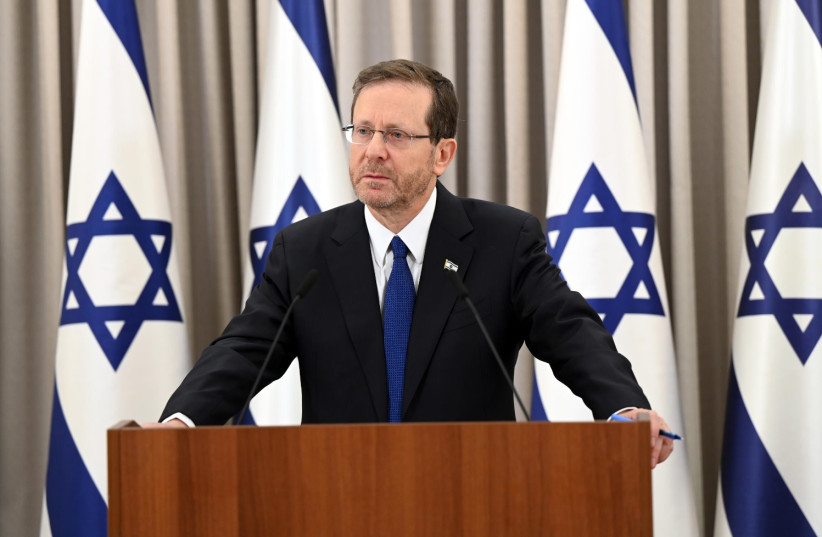The situation in Israel following the Knesset vote on July 24, three days before Tisha Be’av, to pass the first bill in the government’s legal reform package is extremely worrying. Half the country supports reform, believing it is necessary to realign the balance of power, while the other half thinks it might spell the end of Israeli democracy.
Optimists like me see it as a constitutional crisis that can still be resolved, while pessimists warn that this could be the start of a civil war. Israel’s allies, led by the US, are angry with the Israeli government for pushing ahead with the reforms without reaching a broad national consensus, while Moody’s even issued a special report, noting, “Israel has no written constitution and its institutional set-up relies to an important extent on judicial oversight and review.”
Addressing the nation following the passage of the bill, Prime Minister Benjamin Netanyahu – who had just been discharged from Sheba Medical Center the previous day after being fitted with a pacemaker – told a compelling story:
”I’d like to begin with the most moving scene that I have witnessed in the past 24 hours. Last night, masses of Israelis came to demonstrate in favor of the reform and against the reform. On one side of the escalator in the Jerusalem train station stood the supporters, and in the opposite direction the opponents. These ascended and these descended. Everyone held flags, everyone shouted slogans, everyone was there from their heart. Then, despite the differences of opinion, when they were near each other, someone extended a hand to his fellow. First one, and then another, and then another. They shook hands – not as enemies, not as people who hate each other, but as brothers. This is the people of Israel. This is our spirit. This is what we must aspire to always, and especially at this time.”
Israel needs to find a way to heal our polarized divide
While Netanyahu is spot-on about the need for Israelis to reach out to one another across the divide, he is probably more responsible than anyone else for implementing a plan that has painfully polarized the nation. Still, the premier insisted he would use the Knesset’s summer recess to seek consensus, as he was entreated to do by US President Joe Biden. “Despite everything, my friends, we continue to strive for dialogue and to reach agreement,” Netanyahu said. “We are not giving up on the chance of reaching broad agreement – and I tell you, that it is possible.”
On the eve of Tisha Be’av, President Isaac Herzog issued a statement urging the prime minister and his coalition to lead new efforts toward a compromise. “I expect to see very soon the words of reassurance turn into actions, and the messages of reaching out reflected in a tangible and binding work plan,” Herzog wrote. “We must all understand the challenge and the fateful consequences.”
Skeptics will wonder if it’s really possible, given the deep split caused by the judicial reform plan. One possible solution is for Israel, after 75 years of statehood, to take this historic opportunity to pursue another course.
Twenty years ago, the Knesset’s Constitution, Law, and Justice Committee chaired by MK Michael Eitan initiated the Constitution by Broad Consensus Project, which aimed to draft a constitution that would garner support from both Israelis and Diaspora Jewry. As Maayan Hoffman writes in the cover story of this issue, a group of Israeli scholars spent the last few months writing a proposal for establishing a Constituent Assembly to “consolidate the principles and basic rules of Israeli democracy.” Perhaps they might consider calling it a new Sanhedrin, the name given to the council of sages that convened in the Second Temple more than 2,000 years ago.

